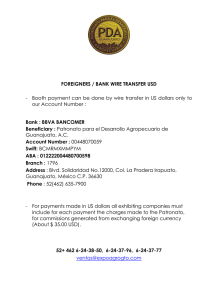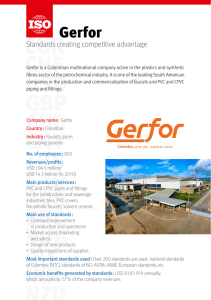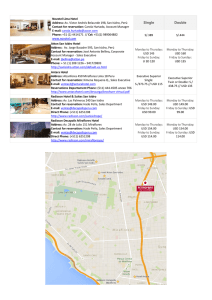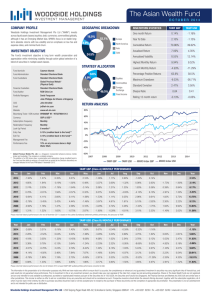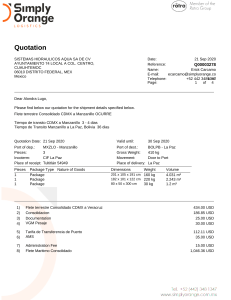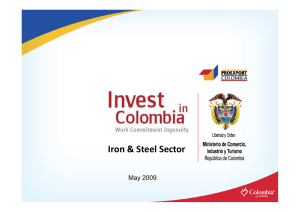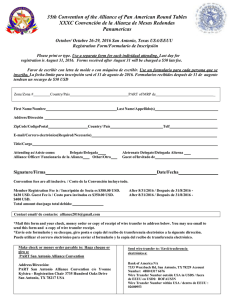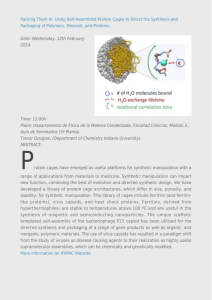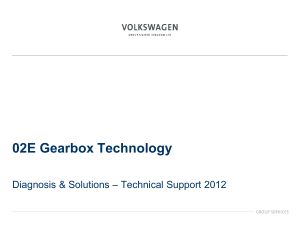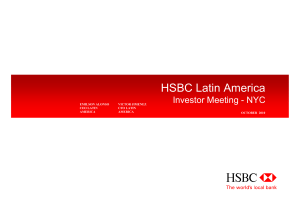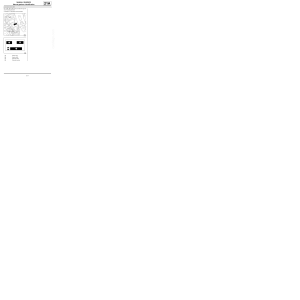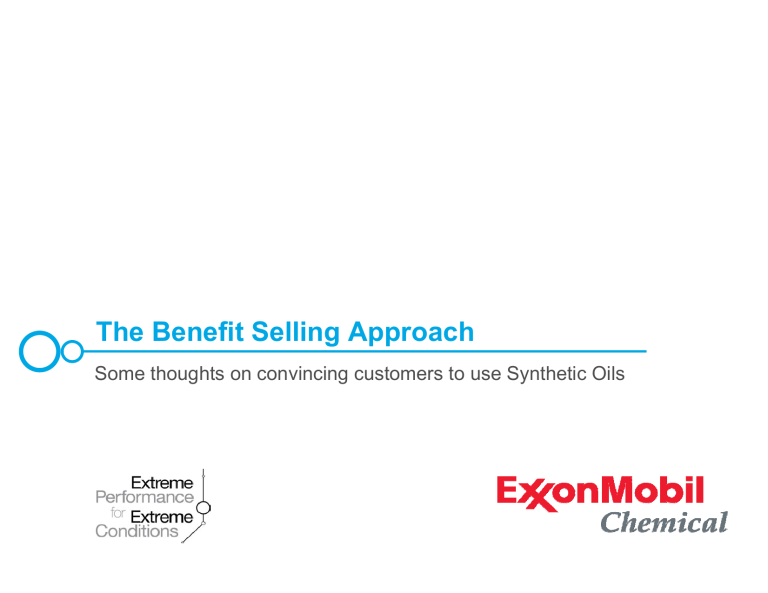
The Benefit Selling Approach Some thoughts on convincing customers to use Synthetic Oils Familiar Scene ? The Buyer The Salesman Competitive Sales Environment Customers are; • under pressure to perform at higher levels • More knowledgeable • More analytical and systematic • Making more complicated decision making • More demanding (e.g. value for money) The Sales Process The sales process starts because the customers “needs” something or “has a desire to change or improve” • Your job is to find out and confirm the “need” • Satisfy the need. • Do not try to satisfy a need, that has not been expressed or confirmed. • Don’t sell on features alone. Product Features versus Benefits • Products typically list a number of features. • The features of a product have no meaning to a customer. • The only thing that matters to him is the benefit that he can obtain from those features. • A customer is willing to pay more for a product, that can satisfy his needs, than for another product that can not. • Winners will demonstrate added value in the clients perception. • Differentiators will include quality systems, service elements, performance guarantees, builder approvals, payment terms, etc. • In the absence of differentiators, it’s all down to price. Product Features versus Benefits Example: Need: Wish to reduce exhaust heat boiler cleaning (engine) Feature: Reduced volatility Benefit: Less oil consumption, reduced boiler fouling, improved efficiency and less maintenance activity. Needs are not constant Unaware - It’s almost perfect Problems - Difficulties - Dissatisfaction Strong wants or desires Need / Payoff questions The linking questions which seek to establish the value of a potential solution • Would there be a value in extending oil change intervals ? • If unscheduled breakdowns were avoided would investment be easier ? • Would the revision of service intervals avoid the use of contract labour ? The real key to success is the link to real savings which in this process are readily identified by the prospective customer for himself. Demonstrating Capability Example - Extract from report to Chemical Company in UK. • “We have attached a spreadsheet based on the savings achieved on the trial gearboxes within XYZ section. These trials confirmed savings of 5% when converting to Synthetic oil grades. • All electrical costs are calculated using 2p/kwhr. • As is clear from the attached data, significant Energy savings of £ 29,265 can be gained from the selected gearboxes with “oil payback times” enclosed for your interest. • We should point out that this project is viable on energy savings alone, however increases in oil life and reduced component wear are the area where even higher levels of savings due to reduced downtime can be achieved. Demonstrating Capability Example – Cement Mill Gearbox • Main problem in the gearbox was the very high operating temperature that caused regular shutdown of the gearbox when the temperature reaches 90°C. Loss of production. • High operating temperatures degraded oil, reduced oil life and increased wear. • Many brands of mineral lubricants (ISO 460) were used but the problem remained the same. • Gearbox filled with ISO 460 PAO based synthetic oil. Results • The oil temperature immediately decreased by around 5°C. • After one week of operation the temperature panel was indicating 10°C difference between the east gearbox operating on synthetic oil and the west gearbox which is operated with mineral oil (82°C). • Shutdowns due to high temperature were virtually eliminated. Increased oil life, improved oil films, reduced wear, energy savings...... Example – Refrigeration Compressor Demonstrating Capability Com pressor Oil Volum es , Drain Interval,years No of Drains Drain Volum es , Litres Top-ups , %/yr Top-ups ,Litres Total Oil Consum ed, Litres 200 1 6 1,200 20 240 1,440 Oil Cost , USD/Litre Total Oil Cost, USD 2.0 2,880 Com pressor Pow er, KW Operating Hours / year Efficiency Im provem ent, % KWH Cost , USD Total Energy Cost, USD 400 5,000 - 0.03 360,000 200 6 1 200 5 60 260 5 1000 15 180 1180 9.0 2,340 540 400 5,000 0.03 360,000 0 Drain , hours Maintenance Hour Cost, USD Drain Costs, USD 4.0 100.0 2400 4.0 100.0 400 Filter Changes, no Cost / Filter, USD Filter Costs, USD 6.0 100.0 600 1.0 100.0 100 500 0.2 240 0.2 40 200 Pay-Back, Year 3240 540 2.6 Waste Disposal Cost , USD/litre Waste Disposal Cost , USD TOTAL SAVINGS (6 Years ), USD Total Savings / Year , USD Per Com pressor 2000 5 Demonstrating Capability Example - The problems of high oil consumption 9 High maintenance cost of exchanger cleaning 9Catalyst blocking 9 high environmental risk (oil dropout) 9 Cylinder liner wear 9 Misfiring/ knocking/ spark plug fouling 9 Deposits in combustion chamber and turbocharger 9 loss in production .....................… Demonstrating Capability Development in specific oil consumption g/kWh 1,2 1,0 0,8 Mineral oil Semi Synthetic Oil 0,6 0,4 0,2 hours 32954 37841 Demonstrating Capability Financial situation after 20000 running hours 9Oil costs: 9Mineral oil = 9Semi-Synthetic oil = 70430 Euro 55780 Euro 9Oil consumption reduced by 18000 ltr over 20000 hour running period 9Cleaning expense = 6050 Euro Saving on 1 engine 20698 Euro Saving on 4 engines 82796 Euro Summary The sales process starts because the customers “needs” something or “has a desire to change or improve” • Find out and confirm the “need” • Satisfy the need. • Demonstrate capability and benefits • Don’t sell on features.
